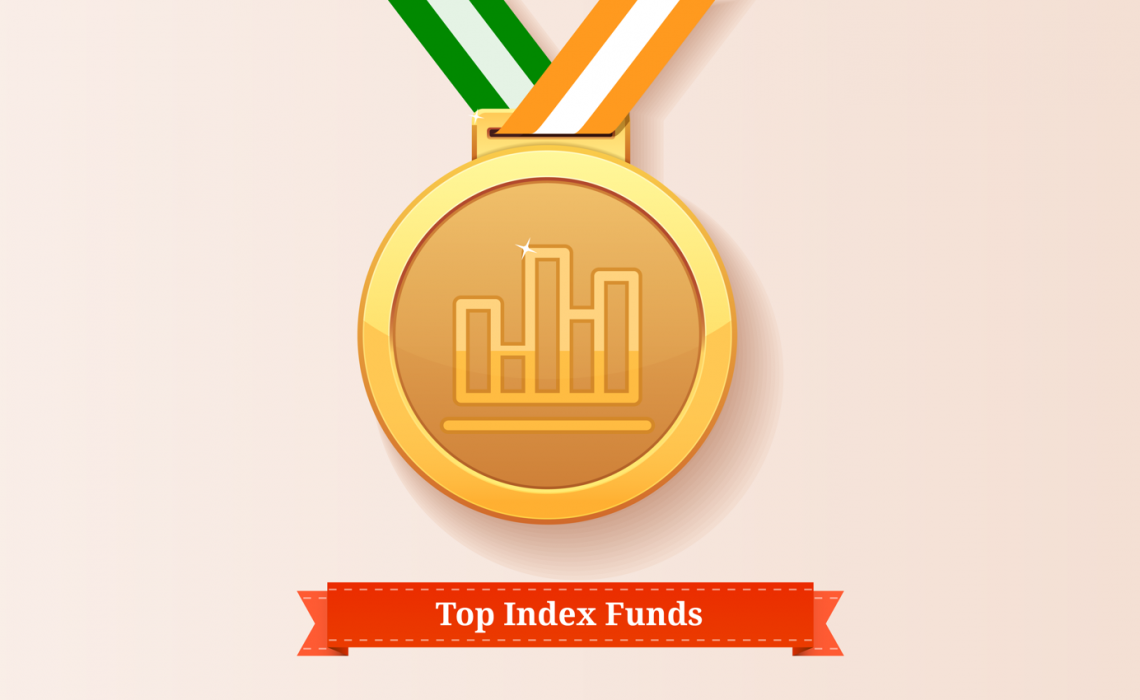
Index Funds are a category of mutual funds that imitate a market index. A BSE Sensex Fund will invest in stocks of the 30 companies appearing on the BSE Sensex in the same proportions. Index Funds are passively managed as they imitate a particular index, and therefore, have a relatively low Expense Ratio when compared to other mutual funds. Index Funds rely on the Efficient Market Hypothesis, the Efficient Market Hypothesis suggests that neither technical or fundamental analysis can consistently produce Risk-Adjusted Excess Returns, or Alpha, therefore, all stocks in the market are traded at their fair value over the long run.
As these funds are passively managed their Expense Ratio is comparatively lower to other equity mutual funds. Lower Expense Ratios translate to higher returns for investors. Index Funds carry Expense Ratios between 0.20% to 1% which is lower than actively managed funds that carry Expense Ratios between 1.5% to 2%. The taxation of Index Funds is similar to that of other equity mutual funds.
But are Index Funds better than Actively Managed Fund?
In the long run, it is difficult for an actively managed fund to beat the benchmark consistently, making passive funds a better choice. However, as the Indian financial market is still growing there is still a possibility for an actively managed fund to consistently outperform the benchmark using the right strategy.
Index Funds may differ from their benchmark in terms of returns because they hold some allocation in cash in case of heavy redemptions, and Expense Ratios are calculated on the returns generated by the fund. Therefore, while selecting an Index Fund it is important to look for the Expense Ratio of the fund and how much it differs from its benchmark in terms of returns.
Our Top Index Funds
In India, there are not a lot of options when it comes to Index Funds because most of them follow only 3 indices: Sensex, Nifty & Nifty 50. Below are our top 3 Index Funds:
The UTI Nifty Fund was launched on March 6th, 2000 by the UTI Mutual Fund House. The fund is an Index Fund that tracks the Nifty Index. As this is an Index Fund the expenses for managing this fund are quite low, giving it a relatively low Expense Ratio of 0.17%. As the fund is based on the Nifty 50 Index, it invests in large-cap equity almost exclusively. The fund follows a growth style of investments, focusing more on the future potential of a company to perform rather than its current market value.
Growth: 70.648
Dividend: 35.5924
| Years | 3 months | 6 months | 1 yr | 3 yrs | 5 yrs |
| Returns(%) | 0.05 | -6.70 | 5.02 | 15.69 | 12.51 |
Scheme AUM: Rs.1,098 Crores
Expense Ratio: 0.17%
Exit Load: Nil
Fund Manager: Kaushuk Basu and Sharwan Kumar Goyal
2. ICICI PRUDENTIAL NIFTY NEXT 50 – DIRECT
The ICICI Prudential Nifty Next 50 Index Fund was launched on June 25th, 2010 by the ICICI Prudential Mutual Fund House. The NIFTY Next 50 Index represents about 12% of the free float market capitalization of the stocks listed on NSE as on March 31, 2016. Due to the nature of this fund, it carries a low Expense Ratio of 0.85%. As this fund is based on the Nifty Next 50 Index it invests almost exclusively in equity of large-cap companies. The fund follows a blend of growth and value styles of investment, focusing on both the present market value of stocks as well as their potential to perform well in the future.
Growth: 23.7592
Dividend: 23.7592
| Years | 3 months | 6 months | 1 yr | 3 yrs | 5 yrs |
| Returns(in %) | -2.82 | -13.97 | -7.99 | 15.34 | 17.09 |
Scheme AUM: Rs. 358 Crore
Expense Ratio: 0.85%
Exit Load: 0.25% for redemption within 7 days
Fund Manager: Kayzad Eghlim
3. HDFC INDEX FUND – SENSEX PLAN – DIRECT
The HDFC Index Fund – Sensex Plan was launched on July 17th, 2002 by the HDFC Mutual Fund House. The BSE SENSEX is a free-float market-weighted stock market index of 30 well-established and financially sound companies listed on the Bombay Stock Exchange (BSE). As this is an Index Fund it carries a low Expense Ratio of 0.30%. Due to the nature of this fund, it invests almost exclusively in equity stocks of large-cap companies. The fund employs a growth style of investment, concentrating more on the potential of a fund to perform well in the future rather than its current market value.
Growth: 318.7231
| Years | 3 months | 6 months | 1 yr | 3 yrs | 5 yrs |
| Returns(in %) | -0.38 | -6.54 | 6.71 | 15.99 | 12.31 |
Scheme AUM: Rs.299 Crores
Expense Ratio: 0.30%
Exit Load: 0.25% for redemption within 3 days
Fund Manager: Krishan Kumar Daga
Depending on the risk appetite and the investment horizon of an investor they can invest in Index Funds, because whether active or passive both are equity, and Equity Mutual Funds are well-suited for long-term investments.


 Make small investments for bigger returns.
Make small investments for bigger returns.

